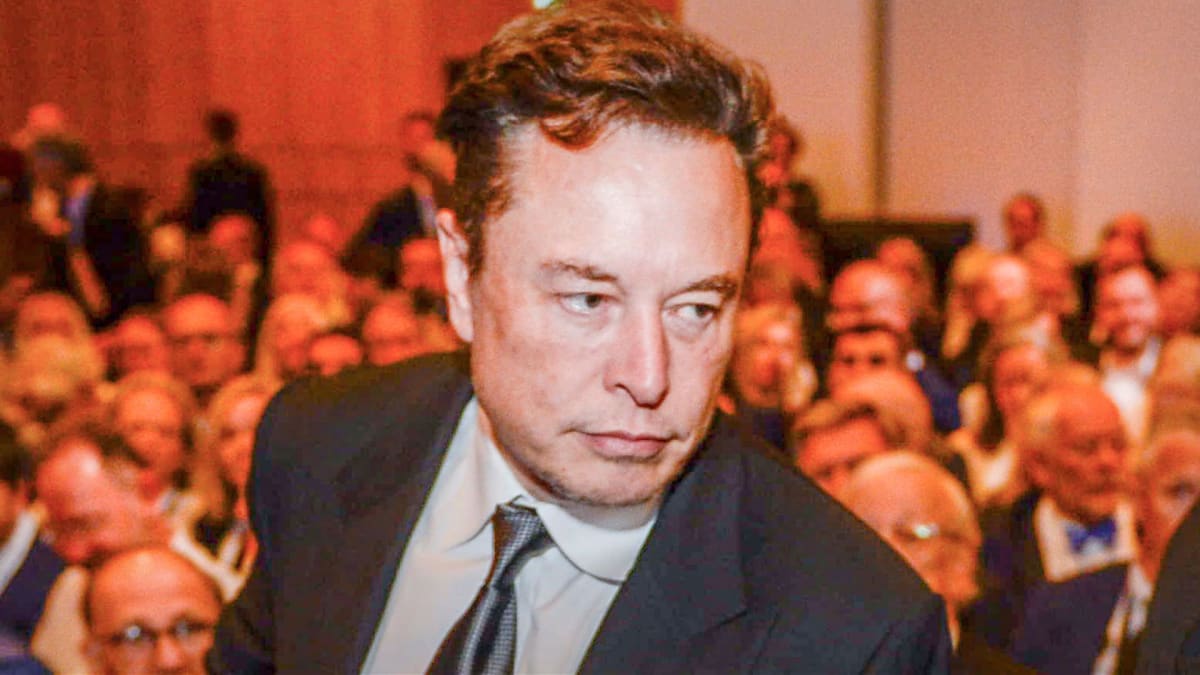
These are close encounters of the wrong kind.
In January 2015, Tesla CEO (TSLA) Elon Musk announced that his spaceflight company, SpaceX, had filed documents to place about 4,000 satellites in low Earth orbit.
DON'T MISS: Elon Musk Announces a Major Starlink Improvement
That broadband internet fleet would come to be known as Starlink and there are currently about 3,600 satellites in operation, accounting for 50% of the active satellites in orbit.
Most recently, on March 29, SpaceX launched Falcon 9 rocket topped with 56 Starlink satellites lifted off from Florida's Cape Canaveral Space Force Station.
This was the 21st for SpaceX in 2023 and the 11th this year devoted primarily to building out the company's Starlink broadband constellation.
“These big low-orbit internet constellations have come from nowhere in 2019, to dominating the space environment in 2023,” Jonathan McDowell, an astrophysicist with the Harvard-Smithsonian Center for Astrophysics in Cambridge, MA. said in an interview with Science News.
“It really is a massive shift and a massive industrialization of low orbit," he said.
Growing Number of Close Passes
And many people have a problem with that.
Hugh Lewis, the head of the Astronautics Research Group at the University of Southampton, U.K., told Space.com that Starlink Satellites alone are involved in about 1,600 close encounters between two spacecraft every week, or about 50% of all such incidents.
In comparison, Starlink's competitor OneWeb, currently flying over 250 satellites, is involved in 80 close passes with other operators' satellites every week, according to Lewis' data.
And space isn't getting any less crowded. Lewis calculated that once SpaceX launches all 12,000 satellites of its first generation constellation, Starlink satellites will be involved in 90% of all close approaches.
Lewis said he was concerned that with the number of close passes growing, the risk of operators at some point making a wrong decision will grow as well.
Avoidance maneuvers cost fuel, time and effort, operators, therefore, always carefully evaluate such risks.
"In a situation when you are receiving alerts on a daily basis, you can't maneuver for everything," Lewis said. "The maneuvers use propellant, the satellite cannot provide service. So there must be some threshold."
"But that means you are accepting a certain amount of risk," he add. "The problem is that at some point, you are likely to make a wrong decision."
Lewis also said he was concerned about Starlink, since the company is a relative newcomer to space.
China Coming on Strong
“They were a launch provider before, now they are the world's biggest satellite operator, but they have only been doing that for two years so there is a certain amount of inexperience."
NASA said that more than 27,000 pieces of orbital debris, or “space junk,” are tracked by the Department of Defense’s global Space Surveillance Network (SSN) sensors.
Much more debris exists in the near-Earth space environment, which the agency said it is too small to be tracked, but large enough to threaten human spaceflight and robotic missions.
Only three confirmed orbital collisions have happened so far, but people are still upset. And it looks like the final frontier will have soon have more visitors.
The South China Morning Post reported last month that China plans to build a huge satellite network in near-Earth orbit to provide internet services to users around the world and to stifle Starlink.
The project has the code name “GW”, according to a team led by associate professor Xu Can with the People’s Liberation Army’s (PLA) Space Engineering University in Beijing.
The GW constellation will include 12,992 satellites owned by the newly established China Satellite Network Group Co.
Meanwhile, Musk, who predicted that "humanity will reach Mars in your lifetime," said earlier this month that SpaceX will be ready to launch the massive rocket Starship in a few weeks.







